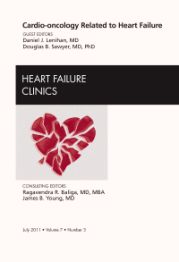Cardio-oncology Related to Heart Failure, An Issue of Heart Failure Clinics, 1st Edition
Authors :
Daniel J. Lenihan & Douglas B. Sawyer
As the number of effective anti-neoplastic agents has grown, there has been a concomitant increase in side effects. Cardiotoxicity, and specifically LV dysfunction, remains the limiting factor for many such agents, and is the focus of growing r
...view more
As the number of effective anti-neoplastic agents has grown, there has been a concomitant increase in side effects. Cardiotoxicity, and specifically LV dysfunction, remains the limiting factor for many such agents, and is the focus of growing research and clinical emphasis. This issue summarizes for the heart failure specialist the possible ways that chemotherapeutic agents might cause cardiotoxicity as well as the methods for detecting, treating and preventing cardiotoxicity.
Your discount code here : #FB456
PRINT ON DEMAND - DELIVERY CAN TAKE UP TO 10 DAYS
As the number of effective anti-neoplastic agents has grown, there has been a concomitant increase in side effects. Cardiotoxicity, and specifically LV dysfunction, remains the limiting factor for many such agents, and is the focus of growing research and clinical emphasis. This issue summarizes for the heart failure specialist the possible ways that chemotherapeutic agents might cause cardiotoxicity as well as the methods for detecting, treating and preventing cardiotoxicity.
Author Information
By Daniel J. Lenihan, MD, FACC, Professor of Medicine, Director, Cardio-Oncology Center of Excellence, Advanced Heart Failure, Clinical Research, Cardiovascular Division, Washington University in St. Louis, St. Louis Missouri and Douglas B. Sawyer, M.D., Ph.D., FACC, Maine Medical Center Department of Cardiac Services Portland, ME, USA
| ISBN Number | 9781455711017 |
|---|---|
| Main Author | By Daniel J. Lenihan, MD, FACC and Douglas B. Sawyer, M.D., Ph.D., FACC |
| Copyright Year | 2011 |
| Edition Number | 1 |
| Format | Book |
| Trim | 178w x 254h |
| Imprint | Saunders |
| Page Count | 168 |
| Publication Date | 27 Jul 2011 |
| Stock Status | IN STOCK - This may take up to 5 business days to ship |
Write Your Own Review
Only registered users can write reviews. Please sign in or create an account
product
https://www.us.elsevierhealth.com/cardio-oncology-related-to-heart-failure-an-issue-of-heart-failure-clinics-9781455711017.html
6660
Cardio-oncology Related to Heart Failure, An Issue of Heart Failure Clinics
https://www.us.elsevierhealth.com/media/catalog/product/9/7/9781455711017.jpg
79.19
98.99
USD
InStock
/Medicine/Cardiology
/Clinics
/Clinics
46
4388725
5255041
As the number of effective anti-neoplastic agents has grown, there has been a concomitant increase in side effects. Cardiotoxicity, and specifically LV dysfunction, remains the limiting factor for many such agents, and is the focus of growing research and clinical emphasis. This issue summarizes for the heart failure specialist the possible ways that chemotherapeutic agents might cause cardiotoxicity as well as the methods for detecting, treating and preventing cardiotoxicity. As the number of effective anti-neoplastic agents has grown, there has been a concomitant increase in side effects. Cardiotoxicity, and specifically LV dysfunction, remains the limiting factor for many such agents, and is the focus of growing research and clinical emphasis. This issue summarizes for the heart failure specialist the possible ways that chemotherapeutic agents might cause cardiotoxicity as well as the methods for detecting, treating and preventing cardiotoxicity.
0
0
add-to-cart
9781455711017
2011 and earlier
Professional
By Daniel J. Lenihan, MD, FACC and Douglas B. Sawyer, M.D., Ph.D., FACC
2011
1
Book
178w x 254h
Saunders
168
Jul 27, 2011
IN STOCK - This may take up to 5 business days to ship
By <STRONG>Daniel J. Lenihan</STRONG>, MD, FACC, Professor of Medicine, Director, Cardio-Oncology Center of Excellence, Advanced Heart Failure, Clinical Research, Cardiovascular Division, Washington University in St. Louis, St. Louis Missouri and <STRONG>Douglas B. Sawyer</STRONG>, M.D., Ph.D., FACC, Maine Medical Center Department of Cardiac Services Portland, ME, USA
Clinics
Clinics
The Clinics: Internal Medicine
No
No
No
No
Please Select
Please Select
Please Select
Related Products
-
25% OFF
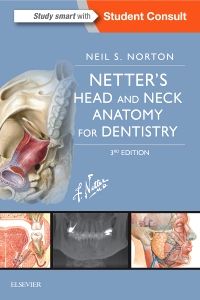 Book
Book
-
25% OFF
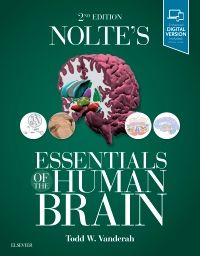 Book
Book
-
25% OFF
 Book
Book
-
25% OFF
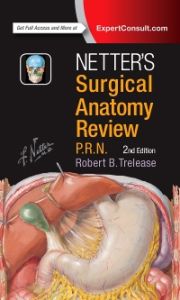 Book
Book
-
25% OFF
 Book
Gray's Clinical Photographic Dissector of the Human Body
Book
Gray's Clinical Photographic Dissector of the Human BodyMarios Loukas
Oct 2018
Special Price $56.24 $74.99 -
25% OFF
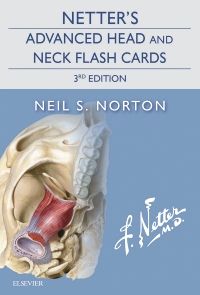 Flash Cards
Flash Cards
-
20% OFF
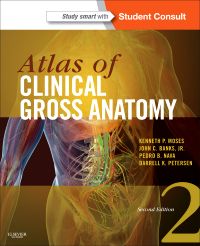 Book
Book
-
20% OFF
 Online Resource
Netter's Dissection Video Modules (Retail Access Card)
Online Resource
Netter's Dissection Video Modules (Retail Access Card)and Frank H. Netter
Oct 2015
Special Price $144.79 $180.99 -
30% OFF
 Flash Cards
Flash Cards
-
30% OFF
 Flash Cards
Flash Cards


